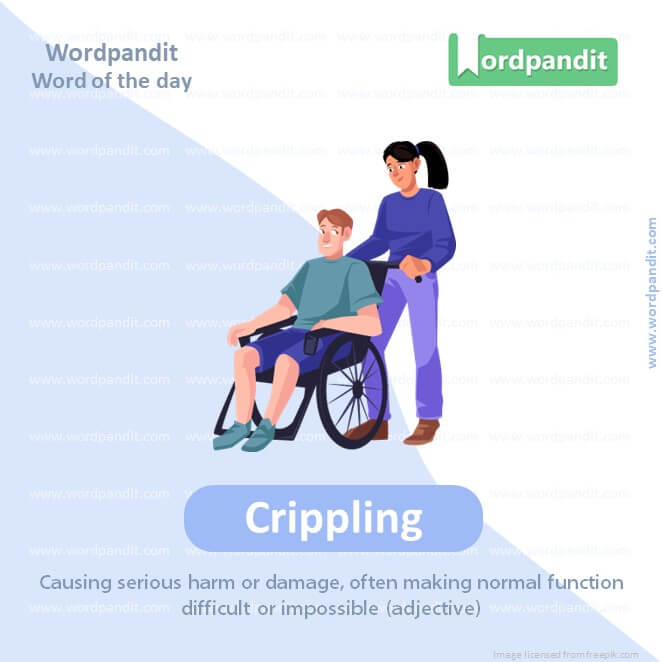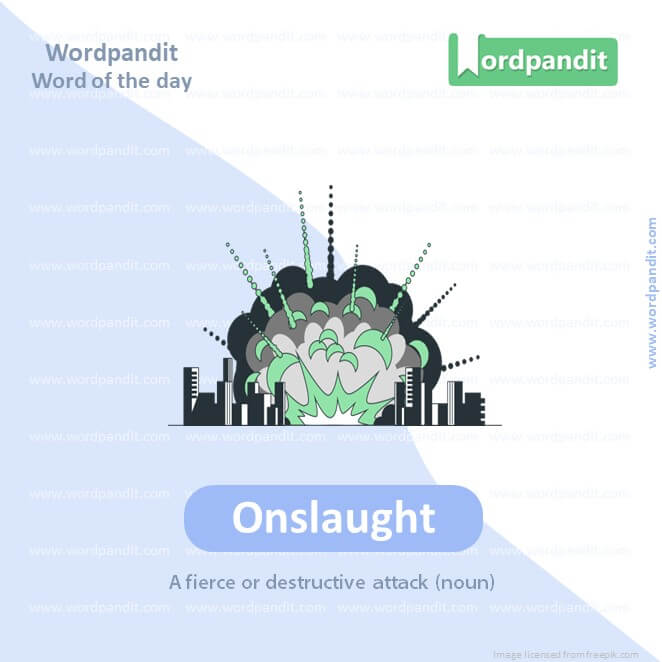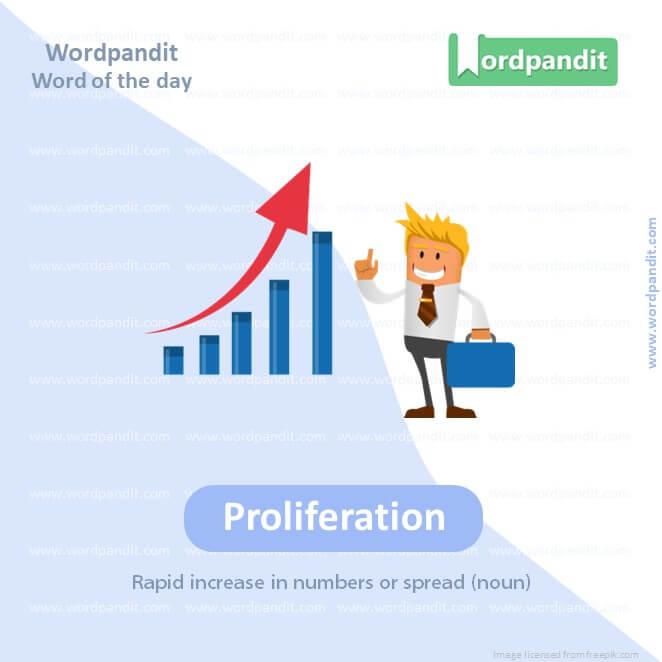Daily Vocabulary Words: List of Daily Used Words in Leading Indian Newspapers
Hi there. Welcome to this special section @ Wordpandit. Our endeavour here is straightforward: highlighting daily vocabulary words that you would come across in leading newspapers in the country. We have included the following newspapers in our selection:
• The Times of India
• The Economic Times
• Hindustan Times
• Mint
• Indian Express
We are putting in extensive work to develop your vocabulary. All you have to do is be regular with this section and check out this post daily. This is your repository of commonly used words; essentially, we are posting a list of daily used words. Hence, this has significant practical application as it teaches you words that are commonly used in leading publications mentioned above.
Visit the website daily to learn words from leading Indian newspapers.

WORD-1: Crippling
CONTEXT: the killing and crippling of people and attempts to stifle them with an inhuman blockade.
SOURCE: Indian Express
EXPLANATORY PARAGRAPH: Crippling is when something is damaged or hurt so much that it can’t work properly anymore, like when a toy breaks and you can’t play with it the same way.
MEANING: Causing serious harm or damage, often making normal function difficult or impossible (adjective).
PRONUNCIATION: krip-ling
SYNONYMS: Debilitating, disabling, paralyzing, incapacitating, devastating, damaging, impairing.
USAGE EXAMPLES:
1. The disease had a crippling effect on his health.
2. Crippling debt made it hard for them to invest.
3. The storm caused crippling damage to the town.
4. The injury had a crippling impact on her career.

WORD-2: Onslaught
CONTEXT: the Minsk Agreements were only meant to win time to supply weapons to Ukraine to prepare for the decisive onslaught.
SOURCE: Hindustan Times
EXPLANATORY PARAGRAPH: Onslaught is like a very fast and powerful attack or a lot of things coming at you all at once, like when you’re trying to catch a lot of falling leaves.
MEANING: A fierce or destructive attack (noun).
PRONUNCIATION: on-slawt
SYNONYMS: Assault, attack, barrage, offensive, bombardment, surge, rush.
USAGE EXAMPLES:
1. The castle withstood the onslaught of the enemy.
2. They faced an onslaught of criticism.
3. The onslaught of questions overwhelmed him.
4. The team prepared for the onslaught of the competition.

WORD-3: Monopolisation
CONTEXT: The virtual monopolisation of many value chains by a single country, not one ruled by a single party with political disputes involving many of its neighbours, proved short-sighted.
SOURCE: Hindustan Times
EXPLANATORY PARAGRAPH: Monopolisation is like when one person takes all of something for themselves, not letting others have any, like taking all the toys and not sharing.
MEANING: The act of obtaining exclusive control over a commodity or service (noun).
PRONUNCIATION: mon-uh-puh-luh-zei-shuhn
SYNONYMS: Domination, control, command, domination, cornering, exclusivity, predominance.
USAGE EXAMPLES:
1. The company faced accusations of monopolisation in the market.
2. The government was concerned about the monopolisation of the industry.
3. The monopolisation of resources by a few companies was criticized.
4. New laws were introduced to prevent monopolisation.

WORD-4: Proliferation
CONTEXT: The proliferation of tax havens further complicated redistribution schemes, reducing fiscal manoeuvrability in seemingly wealthy societies.
SOURCE: Hindustan Times
EXPLANATORY PARAGRAPH: Proliferation is when something increases a lot in number or amount, like when many flowers suddenly bloom in spring.
MEANING: Rapid increase in numbers or spread (noun).
PRONUNCIATION: pro-lif-uh-ray-shuhn
SYNONYMS: Expansion, multiplication, growth, increase, escalation, surge, spread.
USAGE EXAMPLES:
1. The proliferation of mobile devices has changed communication.
2. There’s been a proliferation of cafes in the city.
3. The report discussed the proliferation of nuclear weapons.
4. Efforts were made to control the proliferation of the disease.
WORD-5: Dissatisfaction
CONTEXT: There is, as can be expected, considerable dissatisfaction with these developments, particularly in parts of the corporate and financial world.
SOURCE: Hindustan Times
EXPLANATORY PARAGRAPH: Dissatisfaction is when you feel unhappy or disappointed because something is not as good as you wanted or expected, like when a game isn’t as fun as you thought it would be.
MEANING: The feeling of not being pleased or satisfied (noun).
PRONUNCIATION: dis-sat-is-fak-shuhn
SYNONYMS: Unhappiness, discontent, displeasure, disappointment, frustration, discontentment, disapproval.
USAGE EXAMPLES:
1. There was widespread dissatisfaction with the new policy.
2. His job caused him a lot of dissatisfaction.
3. Dissatisfaction among the staff was growing.
4. They expressed their dissatisfaction with the service.

WORD-6: Precisely
CONTEXT: Precisely because this audience experience has been collective, it has provided a crisp and inspiring image of the nation to the nation.
SOURCE: Times of India
EXPLANATORY PARAGRAPH: Precisely is like being exactly right or perfect, like hitting the center of a target or getting every piece of a puzzle in the right spot.
MEANING: Exactly and accurately (adverb).
PRONUNCIATION: pruh-sighs-lee
SYNONYMS: Exactly, accurately, precisely, correctly, squarely, just, spot-on.
USAGE EXAMPLES:
1. The clock struck twelve precisely.
2. He knew precisely what to do.
3. The measurements need to be taken precisely.
4. She described the events precisely.
WORD-7: Equanimity
CONTEXT: Such a gurmukh rises above all dooja bhaav, dualities, by practising equanimity, that is, even-mindedness.
SOURCE: Indian Express
EXPLANATORY PARAGRAPH: Equanimity is like staying calm and not getting upset, even when things are tough or confusing, like staying cool when a game gets hard.
MEANING: Mental calmness and composure, especially in a difficult situation (noun).
PRONUNCIATION: ek-wuh-nim-uh-tee
SYNONYMS: Composure, calmness, serenity, poise, tranquility, self-control, coolness.
USAGE EXAMPLES:
1. She faced her challenges with equanimity
2. He maintained equanimity during the crisis
3. Her equanimity in the face of chaos was admirable.
4. Equanimity is important in stressful situations.
WORD-8: Constraints
CONTEXT: People are aware of the need for raised pit latrines in flood-prone areas, but financial constraints and the low-lying location of households hinder their construction.
SOURCE: Indian Express
EXPLANATORY PARAGRAPH: Constraints are like rules or limits that tell you what you can or cannot do, like when you can only use certain colors in a drawing.
MEANING: Limitations or restrictions (noun).
PRONUNCIATION: kuhn-straynts
SYNONYMS: Restrictions, limitations, confines, restraints, bounds, barriers, impediments.
USAGE EXAMPLES:
1. The project had several constraints.
2. Budget constraints limited their options
3. Time constraints made it difficult to finish.
4. The constraints of the law were clearly defined.
WORD-9: Incentivising
CONTEXT: Governments can further strengthen people’s initiatives by strengthening their capacity to sustain safe sanitation and incentivising them to revive alternative water sources.
SOURCE: Indian Express
EXPLANATORY PARAGRAPH: Incentivising is like giving someone a reason or reward to do something, like getting a sticker for finishing your homework.
MEANING: Providing motivation or encouragement to do something (verb).
PRONUNCIATION: in-sen-tuh-vyz-ing
SYNONYMS: Motivating, encouraging, stimulating, spurring, provoking, prompting, inducing.
USAGE EXAMPLES:
1. The company is incentivising innovation
2. They were incentivising customers with discounts.
3. The program was aimed at incentivising healthy habits.
4. Incentivising employees improved productivity.
WORD-10: Defunct
CONTEXT: they take it upon themselves to get defunct water sources, like hand-pumps, repaired and have prepared alternative water sources
SOURCE: Indian Express
EXPLANATORY PARAGRAPH: Defunct is when something is no longer existing or being used, like a toy that’s been thrown away and isn’t around anymore.
MEANING: No longer existing or functioning (adjective).
PRONUNCIATION: dih-fuhngkt
SYNONYMS: Extinct, obsolete, discontinued, inactive, nonfunctional, outmoded, expired.
USAGE EXAMPLES:
1. The organization is now defunct.
2. He works for a defunct magazine.
3. The old laws became defunct.
4. The factory has been defunct for years.
vocabulary games for adults
Learning new words and expanding one’s lexical range should not be confined to the four walls of a classroom nor should it be deemed an activity exclusively meant for children. Yes, we’re talking about ‘vocabulary games for adults,’ a fun and interactive way to intensify language skills and broaden intellectual horizons.
Often, people associate the term ‘vocabulary games for adults’ with something overwhelming or tedious. However, its essence is quite the opposite: to transform the otherwise mundane process of vocabulary augmentation into an engaging, enjoyable experience. Such games enable adults to step out of their comfort zone, explore the vast world of words, and become more articulate and proficient in communication.
Vocabulary games for adults are ideally designed to challenge the mind and stimulate curiosity. Rather than the constant flipping of flashcards or poring through dictionaries, these games incorporate a playful element, ensuring the learning experience is not just effective but also entertaining. They help in retaining new words better and applying them more fluidly in everyday conversation.
Ranging from online crossword puzzles, word searches to mobile applications, there are umpteen vocabulary games for adults available at the tips of your fingers, seamlessly merging learning with leisure. Not forgetting the traditional Scrabble or Boggle which not only test players’ vocabulary but also their strategic abilities.
But how should vocabulary games for adults be learned and incorporated into daily life? The key here is not to complicate it. Committing to fifteen or twenty minutes of gameplay a day, perhaps during your commute or break time, can lead to significant improvement over time. Remember, it’s not about winning; it’s about progressively expanding your diction.
In conclusion, vocabulary games for adults are not only an excellent tool for wordsmiths but also for those seeking to reinforce their linguistic competence or simply with the desire to learn. So why wait? Add a fun twist to your daily routine with vocabulary games for adults and become a wordsmith yourself!













